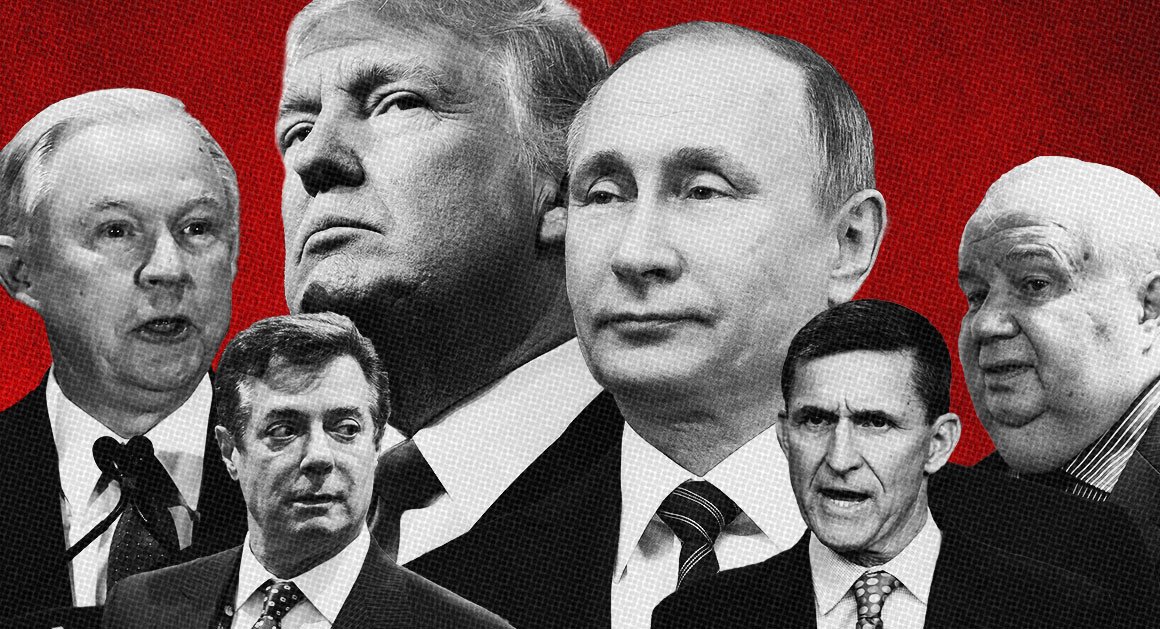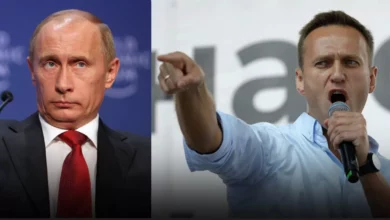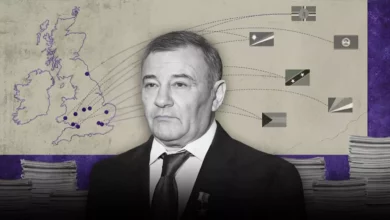Russian and US Elections: Will the Conflict in Ukraine Conclude in 2024 Amidst?

December 29, 2023
As the dawn of the New Year unfolds, there is a flicker of optimism regarding the resolution of the Russian invasion of Ukraine in 2024. The United States and Russia, deeply entangled in the enduring dynamics reminiscent of the Cold War, find themselves at a critical juncture with pivotal elections on the horizon, shaping the presidency and the composition of the House of Congress.
This electoral process not only holds the potential to influence the domestic landscape but also carries the weight of international implications, offering a glimmer of hope for a temporary truce. Against the backdrop of these geopolitical complexities, the Russian and US elections become crucial, as they have the power to reshape diplomatic relations and set the course for the resolution of ongoing conflicts

Political Dynamics: The Impending Biden-Trump Rematch and Putin’s Quest for Reaffirmation
In the American political arena, a Biden-Trump rematch looms large, with both camps flexing comparable strength. Conversely, Vladimir Putin seeks a reaffirmation of his presidency to bolster his standing within the Russian military and among the populace. A faction of the population, wearied by the ongoing conflict, looks to Trump’s potential return to the White House as a means to revive Putin’s waning international image.
President Joe Biden contends not only with declining approval ratings but also faces challenges to his economic policies, collectively termed Bidenomics. Despite initial skepticism, recent developments paint a positive picture for America, with a decrease in inflation, a surge in job rates, and buoyant stock markets. In stark contrast, former President Donald Trump finds himself entangled in a web of legal troubles, despite maintaining a robust presence as the GOP’s favored nominee. His legal woes include nine counts of felony charges related to conspiracy and election subversion.
Vladimir Putin contends with mounting domestic pressure to withdraw from Ukraine, as the conflict exacts a toll on the Russian economy through stringent US sanctions and a ban on the export of raw materials worldwide. The military’s fatigue in engaging in a war with a former Soviet colony, in which Russia seemingly lacks interest, further exacerbates the challenges.
Russian and US Elections 2024

Putin, eyeing re-election against this backdrop, appears to be banking on the potential return of Trump to counteract US foreign policy and lift the sanctions imposed by the US and its allies, as per media reports.
Under Putin’s Nose: Ukraine’s Bold Raids Challenge Russian Surveillance (russianoligarchs.com)
While Putin’s announcement of his candidacy for the 2024 presidential race was anticipated, speculation arises regarding potential surprises in the ongoing war in Ukraine. In the US, political strategists are contemplating this question amidst their own electoral proceedings, with the nation gearing up for the re-election of the US President and the 435-member House of Representatives. The Republicans, holding a razor-thin majority, face the risk of losing control, particularly with Democrats emphasizing abortion rights in the elections.
The recent off-year elections witnessed Republicans losing ground in states like Ohio, Kentucky, and Virginia, where abortion rights dominated the discourse. Despite an outside chance for a Trump presidency, the House appears precarious for the Republicans, potentially granting Democrats control over both Houses.
As the Russian populace heads to the polls on March 15, less than a month after the second anniversary of the full-scale invasion of Ukraine, both sides appear resigned to a prolonged conflict. The significant toll in terms of casualties, equipment losses, and economic damage since the conflict’s initiation on February 24, 2022, is expected to escalate.
Putin and his Ukrainian counterpart, Volodymr Zelensky, maintain uncompromising stances that impede immediate peace talks. Experts, cited by Newsweek, predict the continuation of the fighting into 2025.
The prospect of outlier events cannot be dismissed, including the audacious challenge to Putin’s authority by Wagner Chief Yevgeny Prigozhin, whose demise in a plane crash followed his seizure of military facilities in Rostov-on-Don and a march on Moscow. Additionally, the Kremlin consistently rejects rumors about Putin’s health.

The only way I can foresee the Ukraine war possibly ending in 2024 is if Vladimir Putin dies,” remarked Beth Knobel, professor of communications and media studies at Fordham University and former CBS News Moscow bureau chief, in a statement to Newsweek.
Persistent rumors circulating in Moscow suggest that Putin may be grappling with cancer. His public appearances have become increasingly infrequent, and there are claims that he operates in seclusion from a mountain resort on the outskirts of the Kremlin.
Knobel acknowledged the theoretical possibility that Russia might exploit a change in leadership to declare victory and maintain control over the territory seized since February 2022. However, she expressed skepticism about the likelihood of Russia retracting from the war even in the event of Putin’s demise, citing the substantial national image investment in achieving victory.
The much-anticipated Ukrainian counter-offensive, initiated in June to reclaim Russian-occupied territory, has fallen short of expectations. Despite Ukraine’s Commander-in-Chief Valerii Zaluzhnyi characterizing the conflict as a “stalemate,” President Zelensky dismissed this assessment. Rumors of a divide between key figures in Ukraine persist, accompanied by reports of a top-level reshuffle in the New Year.
Ukraine confronts a crisis of confidence in the US, with Congressmen accusing Zelensky’s government of corruption and alleging that US aid is being diverted by oligarchs and bureaucrats. Zelensky vehemently denies these claims while urgently requesting $61 billion in aid currently stalled in Congress. US allies advocate for the funding to continue, fearing that a Russian victory could embolden Russia to reassess former Soviet territories in Central Asia and Eastern Europe, potentially reigniting the Cold War.
Despite widespread pessimism about Ukraine’s chances to defeat Russia and reclaim occupied territories due to the stalled counter-offensive, experts like Peter Rutland, professor of Russian, East European, and Eurasian Studies at Wesleyan University, believe that serious peace talks and a potential end to the war in 2024 are unlikely. Russia’s objectives extend beyond holding the occupied territories; they seek the installation of a compliant political regime in Kiev, and Putin is likely to await the outcome of the November 2024 election to gauge the potential return of Donald Trump.
Former US President Donald Trump and Vladimir Putin last met at the G20 Osaka Summit in 2019. The meeting took place in Osaka, Japan, on June 28, 2019. Trump, in his role as the Republican primary frontrunner, called for an end to ongoing US funding for Kiev to combat Putin’s aggression. According to Kremlin propagandists, Trump is seen as Moscow’s favored White House resident-in-waiting, not only for his opposition to Congressional support for Ukraine but also for describing Putin as “very smart” post the full-scale invasion. Despite rejecting US intelligence assessments of Russian interference in the 2016 election on his behalf.
The US will withdraw support for Ukraine under another Trump administration, plain and simple,” stated Chris Dolan, a political science professor at Lebanon Valley College, specializing in US support for Ukraine and NATO. Dolan believes that Joe Biden will handle the situation adeptly, anticipating a resolution in the ongoing Congressional struggle over foreign aid, albeit not immediately. He attributes this delay to domestic politics and electoral pressures.
Zelensky’s December 12 visit to Washington, D.C., was less extravagant than his previous reception. Instead of the expected $61 billion, President Biden reaffirmed support and provided $200 million in military assistance for air-defense interceptors, artillery, and ammunition. Congressional Republicans, however, are pushing for Ukrainian aid to be linked with comprehensive immigration reform, while the Israel-Hamas conflict since October 7 competes for attention.
Isil Akbulut Gok, an associate professor at Sacred Heart University, predicts that additional aid and weapons deliveries to Ukraine may be hampered by the Middle East conflict and the upcoming US election year. Mert Kartal, an associate professor at St. Lawrence University, suggests that Biden might strengthen military support for Ukraine in spring 2024, potentially leveraging a Ukrainian victory for his presidential campaign. Convincing a skeptical Republican Party about Putin’s defeat, however, poses a significant challenge. As GOP lawmakers prioritize immigration reform over financial aid to Ukraine, Biden may attempt to prolong the conflict into 2025.








